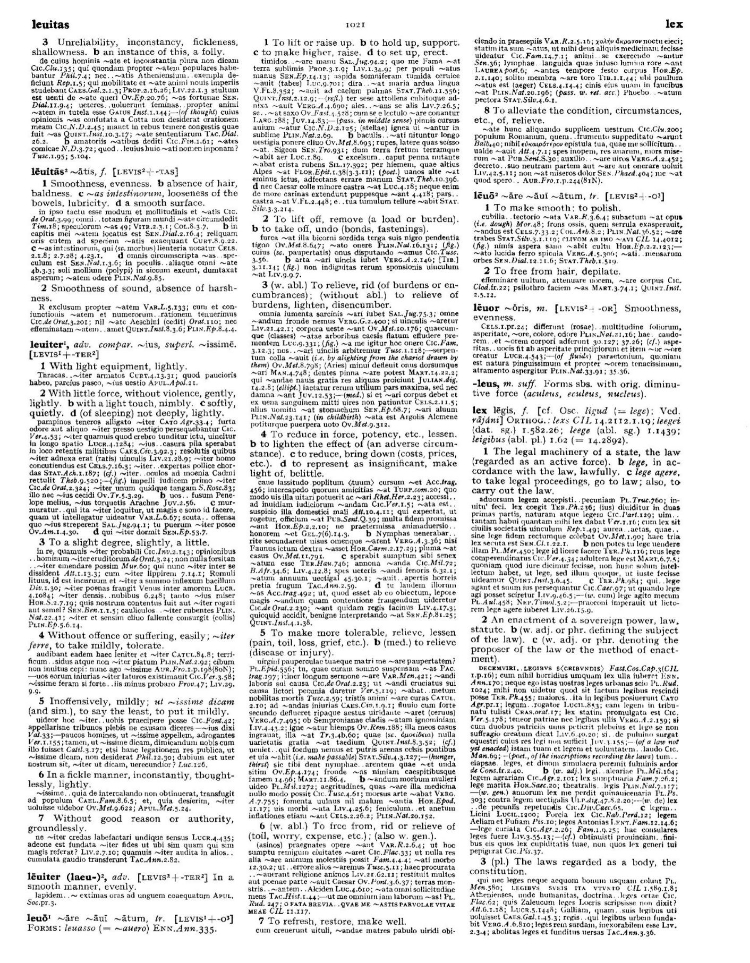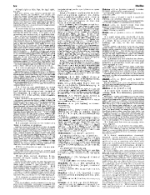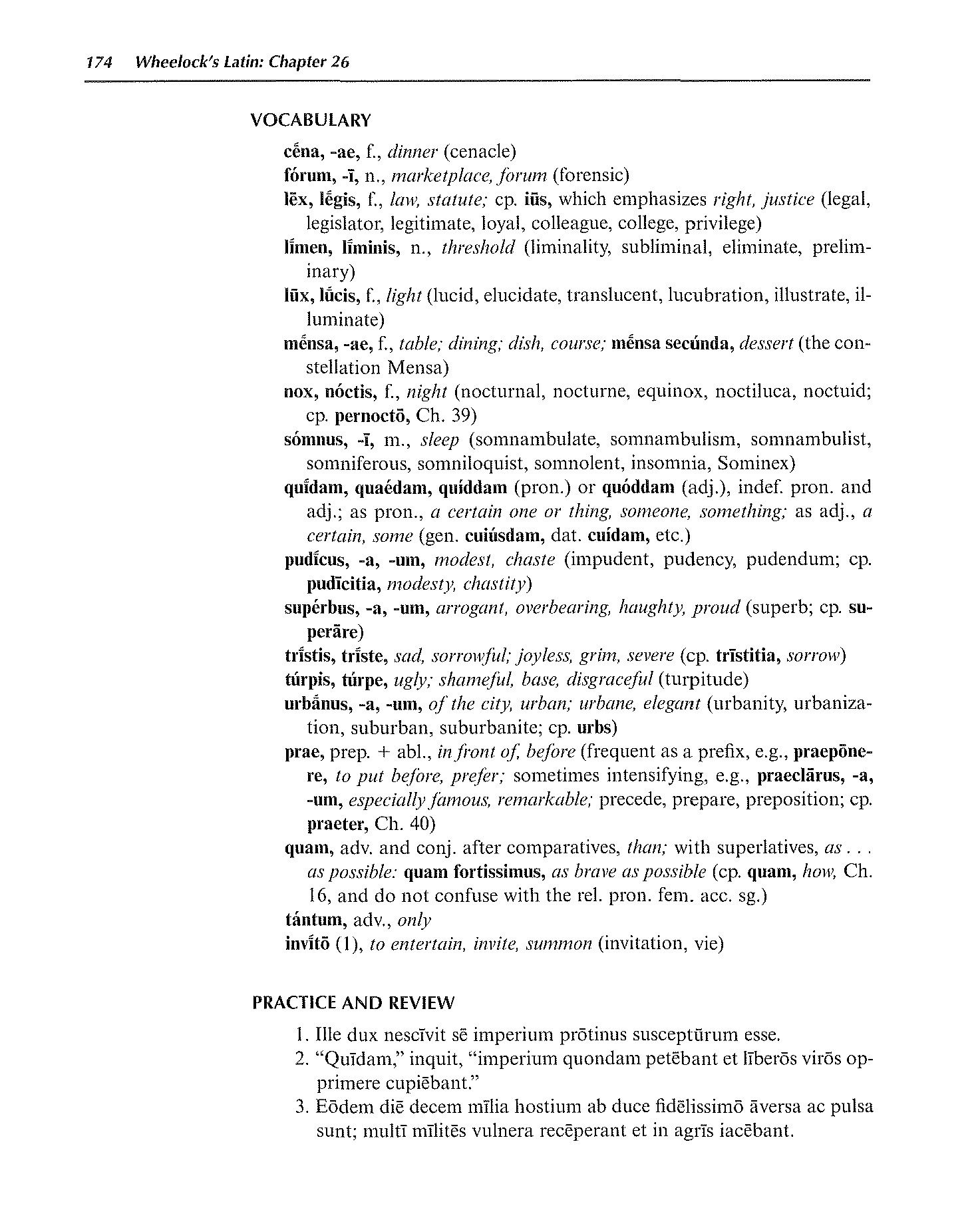
page_listing.tpl
page_subListingDetails.tpl
sub_listingDetails_style1.tpl
sub_listingDetails.title.tpl
lēx law
lēx is a Latin Noun that primarily means law.
Definitions for lēx
Wheelock's Latin
Noun
- 1
law, statute
- 2
cp. iūs, which emphasizes right, justice
English derivatives:
legal legislator legitimate loyal colleague college privilege
Oxford Latin Dictionary
Noun
- 1
The legal machinery of a state, the law (regarded as an active force). (b) lege, in accordance with the law, lawfully. (c) lege agere, to take legal proceedings, go to law; also, to carry out the law.
- 2
An enactment of a sovereign power, law, statute. (b) (w. adj. or phr. defining the subject of the law). (c) (w. adj. or phr. denoting the proposer of the law or the method of enactment).
- 3
(pl.) The laws regarded as a body, the constitution.
Sentences with lēx
Latin to English
Dūra lēx sed lēx.Compare A harsh law, but the law nevertheless.
Dē minimīs nōn cūrat lēx.Compare The law does not concern itself with trivialities.
Salūs populī suprēma lēx est. (Cicero, De legibus III.8)Compare The safety of the people is the supreme law.
Silent legēs inter arma. (Cicero, Pro Milone 11)Compare Amid arms, laws grow silent.
Nemo est supra leges.Compare No one is above the law.
Unus invenio suasor lex Varro, locus non humilis solum, sed etiam sordidus, ortus.Compare The only person found to advocate the law was Varro, a man sprung not merely from a humble, but even from a mean position.
Nolo ad vester lex atque institutum exigo is qui Lacedaemon fio.Compare Do not measure by your laws and institutions what is done at Lacedaemon.
Lex est ratio summa insita in natura, quae iubet ea, quae facienda sunt, prohibetque contraria. [De legibus, I,vi,18]Compare Law is the highest reason implanted in nature, which commands what ought to be done and forbids the opposite.
Declension table for lēx
Cactus2000
| Singular | Plural | |
| Nom. | lēx | lēgēs |
| Gen. | lēgis | lēgum |
| Dat. | lēgī | lēgibus |
| Acc. | lēgem | lēgēs |
| Abl. | lēge | lēgibus |
Data sources
Notes
- Definitions
- Frederick M. Wheelock, Wheelock's Latin, 6th ed., rev. Richard A. LaFleur (New York, NY: HarperCollins Publishers, 2005): 174.
- P. G. W. Glare, Oxford Latin Dictionary, Vols. 1-8 (Oxford: Clarendon Press, 1982): 1021.
- Word frequencies
- Christopher Francese, "Latin Core Vocabulary," Dickinson College Commentaries, last modified 2014, http://dcc.dickinson.edu.
- Paul B. Diederich, The Frequency of Latin Words and Their Endings, PhD diss., (Columbia University, 1939).
- Louis Delatte, Suzanne Govaerts, Joseph Denooz, and Etienne Evrard, Dictionnaire fréquentiel et index inverse de la langue latine [Frequency Dictionary and Inverse Index of the Latin Language] (Liège, Belgium: Laboratoire d'analyse statistique des langues anciennes de l'Université de Liège [L.A.S.L.A.], 1981): 120.
Bibliography
Allen, Joseph H. Allen and Greenough's New Latin Grammar for Schools and Colleges: Founded on Comparative Grammar. Edited by James B. Greenough, George L. Kittredge, Albert A. Howard, and Benjamin L. D'Ooge. Boston, MA: Ginn & Company, 1903.
Crystal, David. A Dictionary of Linguistics and Phonetics. 6th ed. Oxford, UK: Blackwell Publishing, 2008.
Delatte, Louis, Suzanne Govaerts, Joseph Denooz, and Etienne Evrard. Dictionnaire fréquentiel et index inverse de la langue latine [Frequency Dictionary and Inverse Index of the Latin Language]. Liège, Belgium: Laboratoire d'analyse statistique des langues anciennes de l'Université de Liège (L.A.S.L.A.), 1981.
Diederich, Paul B. The Frequency of Latin Words and Their Endings. PhD diss., Columbia University, 1939.
Francese, Christopher. "Latin Core Vocabulary." Dickinson College Commentaries. Last modified 2014. http://dcc.dickinson.edu/latin-vocabulary-list.
Gildersleeve, Basil L., and Gonzales Lodge. Gildersleeve's Latin Grammar: Third Edition, Revised, and Enlarged. 3rd ed. London, England: Macmillan and Co., 1903.
Glare, Peter G.W. Oxford Latin Dictionary. Vols. 1-8. Oxford, England: Clarendon Press, 1982.
Krüger, Bernd. "Latin Conjugation Tables." Cactus2000. Accessed May 5, 2023. https://latin.cactus2000.de/index.en.php.
Pierson, Nick. "Sound of Text." Accessed October 26, 2019. https://soundoftext.com.
Wheelock, Frederick M. Wheelock's Latin. 6th ed. Revised by Richard A. LaFleur. New York, NY: HarperCollins Publishers, 2005.
Wiktionary Contributors. "Victionarium." Wikimedia Foundation, Inc. Updated March 18, 2019. https://la.wiktionary.org/wiki/Victionarium:Pagina_prima.
Citation
Chicago (17th ed.)
Allo Contributors. "lēx, lēgis (n.) - Latin Word Definition." Allo Latin Dictionary. Last modified . Accessed February 19, 2026. http://ancientlanguages.org/latin/dictionary/lex-legis.
Entry created on . Last updated on .








